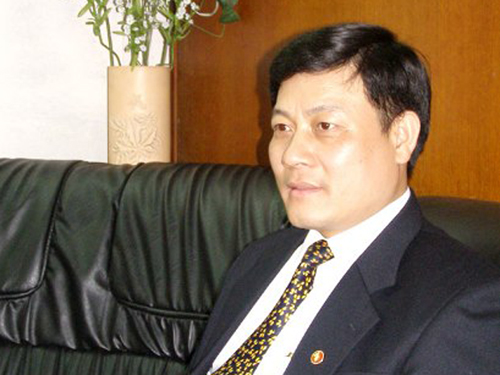
Mr. Nguyen Thanh Hung - substantial contributor to promoting cooperation between UEB and Asian Institute of Technology
On the occasion of visiting AIT (Thailand), we interviewed a delegation member, Mr. Nguyen Thanh Hung - commercial counselor of Vietnam Embassy to Thailand about the BBA-MBA continuous education cooperation program between VNU University of Economics and Business and Asian Institute of Technology (AIT).
- Do you have any assessment of the BBA-MBA continuous training program between UEB and AIT?
Mr. Nguyen Thanh Hung: Vietnam and Thailand have established their diplomatic relationship for 34 years. During the past time, the relationship has developed in various areas such as diplomacy, economics and commerce. The BBA - MBA continuous training program recently signed between UEB and AIT is considered as the starting point in education, within the ASEAN cooperation framework in general and Vietnam - Thailand in particular.
The BBA - MBA program of the two institutes will be an important bridge in promoting cultural exchange and bilateral education. Especially, this program will facilitate many Vietnamese students to access modern knowledge from the AIT professors whose reputation is already well-known.
- As the commercial counselor of Vietnam Embassy to Thailand, what do you think about UEB’s partner - Asian Institute of Technology?
Mr. Nguyen Thanh Hung: Asian Institute of Technology (AIT) has been widely known regionally and internationally for having a line-up of professors and lecturers of international standards. Although located in Thailand, AIT not only has substantial impact of teaching and learning quality to Thailand’s education but also in Asia and many other countries. This is why every year AIT receives students from Asia and other regions come to study.
Thanks to relationships and technical, financial assistance from many countries as well as international organizations, students are supported in their study and research.
That AIT becomes a partner of VNU-UEB in BBA - MBA training is seen as a strategic move in the general development of UEB, contributing to progressively enhance teaching skills of lecturers and UEB students’ qualification.
- How do you forecast the prosperity of this cooperation program?
Mr. Nguyen Thanh Hung: With the determination of leaders of UEB and AIT, I am quite confident that this cooperation will succeed. One evident of the belief is that UEB is ready to send several lecturers to AIT in August to attend to training on teaching skills, as a premise for long-term collaboration.
- In your opinion, during cooperating with universities and organizations in Thailand, what pros and cons would UEB in particular and other universities in general meet?
Mr. Nguyen Thanh Hung: Trainingactivities always consist of typical advantages and disadvantages.
Advantages include: (1) the bilateral cooperation occurs in the context of good relationship between the two countries, especially in ASEAN regional cooperation framework, one target of which is to have an ASEAN Economic Community - AEC in 2015, towards a united and developed ASEAN. (2) the demands of developing an international cooperation in education of both universities is being promoted. (3) UEB is gradually fulfilling its faculties who had been trained overseas, enthusiastic and young. Moreover, geographical distance of AIT and UEB is not quite an obstacle.
Regarding disadvantages, what we need to consider now is whether students’ foreign language capabilities are sufficient enough to understand lectures and curricula; UEB’s facilities are sufficient to meet teaching and learning requirements of foreign lecturers and students; and students learning methods are in line with international modern approach.
- Do you have any advice to the success of UEB’s cooperation with AIT in particular and Thai universities in general?
Mr. Nguyen Thanh Hung: As Vietnam’s commercial counselor to Thailand, I was invited to give lectures in some Thai universities, I think they have scientific arrangement of faculties; universities have good combination of curricula and inviting experts from various areas to give lectures, so that students get access to situational and practical lessons. From that I have drawn some experience which can be considered as an advice.
1. Cooperation should start with exchanging management staff, lecturers before exchanging students;
2. There should be separation of cooperation areas into small cooperation of management, training lecturers, etc... for which Thai universities have professional experience in organization.
3. Cooperation in exchanging students or continuous training.
- What does Vietnam Embassy to Thailand often support in the cooperation activities between Vietnam and Thailand universities?
Mr. Nguyen Thanh Hung: The commercial department as well as Vietnam Embassy to Thailand generally support and create favorable conditions for the collaboration of domestic organizations with Thai partners in accordance with current legal regulations of both countries.
However, from perspective of sustainable commercial development, the department is in favor of education cooperation because this will bridge future relationship in terms of economy and commerce (commerce, by current Law of Trade, is trading of commodities, services including education, investment and intellectual property).
The commercial department is willing to support universities in education cooperation, dissemination of Vietnamese economic laws and promotion of bilateral collaboration.
- Thank you very much!